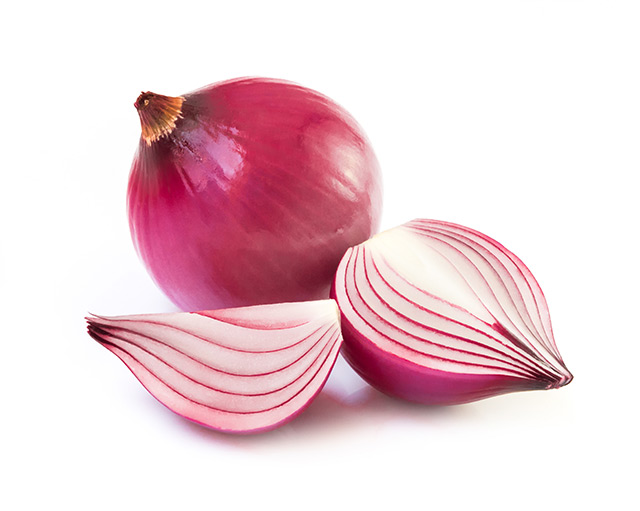Does a high metabolism help you LOSE weight? Doctor reveals the truth
10/31/2016 / By slendernews

METABOLISM is usually an expression people use to explain why some people can eat a lot without putting on weight or struggle to lose weight.
Article by Olivia Lerche
It is the umbrella term for all the metabolic reactions that occur in the body to generate energy and regulate growth.
Dr Sarah Brewer, author of Eat Well, Stay Well has described what a metabolic rate really is and whether it can really help you lose weight.
Metabolic reactions that builds things, such as making new muscle proteins from amino acids, is known as anabolism. Metabolic reactions that break things down, such as burning fat or glucose to produce energy, is known as catabolism.
Cells can only survive if they have energy to fuel their reactions, plus the ‘building blocks’ needed for repair and division.
Your metabolic rate dictates how many calories your body burns at rest.
This is calculated as the energy your body uses when you are lying in bed, at complete physical and mental rest, 12 to 14 hours after last eating, in an ambient temperature of 26 to 30 degrees celsius.
The higher your basal metabolic rate (BMR), the more calories you will burn. The lower your BMR, the fewer calories you will burn.
Your BMR will vary depending on gender, age, lean body mass percentage – as muscle burns more energy than fat, nutritional status and genetic inheritance which dictates the efficiency of your metabolism.
Other factors that contribute to your BMR even while you sleep includes reaction in cells, transport of minerals between cells and body movements, such breathing, heart contraction and intestinal movements.
Your basal metabolic rate is partly regulated by the thyroid gland, which produces two iodine-containing hormones, thyroxine (T4) and tri-iodothyronine (T3).
These hormones enter cells and switch on genes that make certain proteins and enzymes, and boost the rate that energy is produced in mitochondria – the tiny structures that act like cell batteries.

Metabolism: Good nutrition is vital for metabolism
Most people who are overweight do not have a slower than normal metabolism – unless they have an underactive thyroid or other rare hormonal imbalances. In fact, the more you weigh, the higher your BMR as this depends on your overall weight.
A series of calculations can be used to estimate BMR and calorie requirements.
What happens if your metabolism slows?
If you have an underactive thyroid gland, low levels of the hormones T4 and T3 can cause your BMR to slow by as much as 40 per cent.
Low levels of thyroid hormones reduce gene activation and slows every metabolic reaction, including energy production, resulting in symptoms such as feeling the cold, profound fatigue, constipation (due to slowing of intestinal contraction), slow pulse, sleepiness, depression, dry hair and skin. As you are burning less glucose and fat to produce energy, you will also tend to gain weight.
Most people who are overweight do not have an underactive thyroid, but it is worth checking this out if you have some of the other typical symptoms.

Metabolism: Activity can boost metabolic rate
If you have an overactive thyroid gland, excess production of T4 and T3 causes your BMR to increase by as much as 100 per cent.
By increasing gene activation and energy production, every metabolic reaction speeds up.
Because you are burning more fat and glucose to produce energy, you will tend to lose weight. You will also feel hot and sweat easily, develop a rapid pulse which may become irregular, become hyperactive with difficulty sleeping, and may develop bowel looseness.
How does exercise affect your metabolism?
Increasing your level of physical activity is one of the best ways to boost your metabolic rate. A good work out will mean you burn more glucose and fat to produce energy for around 15 hours afterwards.
Regular exercise will also increase your muscle bulk, which is one of the main determinants of your BMR. What’s more, regular exercise stimulates the production of new mitochondria within muscle cells, and causes them to grow larger, so your muscles burn more fuel to produce energy, even at rest.

Metabolism: Overactive thyroid glands can increase BMR
The type of food you eat plays an important role in how much energy you burn, as dietary-induced thermogenesis (heat generated by processing food) accounts for 10 per cent or more of the energy provided by foods.
The speed of most metabolic reactions in the body depends on adequate supplies of vitamins and minerals.
When you dramatically cut back on food intake during a crash diet, your body goes into starvation mode and metabolism slows to reduce the need to burn body proteins as an emergency fuel.
Reduced food intake also reduces the level of vitamins and minerals you obtain which may further slow your metabolism.
This is one reason why you find it easier to lose weight at the start of a diet and why you tend to regain weight more quickly when you stop the diet.
Good nutrition is vital for a healthy metabolism – all the vitamins, minerals essential amino acids and essential fatty acids are involved in key metabolic pathways.
Caffeine is a well-known metabolism booster. Studies suggest that consuming 5mg caffeine per kilogram body weight can increase muscle fat burning by as much as 150 per cent during endurance exercise such as cycling.
One study found that a single dose of 100 mg caffeine increased the resting metabolic rate of both lean and obese volunteers by 3 per cent to 4 per cent over two and a half hours. It also increased the amount of energy they wasted as heat (diet-induced thermogenesis). Consuming repeated caffeine doses of 100 mg every 2 hours for 12 hours increased their energy expenditure by between 8 per cent and 11 per cent during that period.
As a result, the lean individuals burned an additional 150 kcals energy, while the obese volunteers burned an additional 79 kcals.
Green coffee bean extracts also contain polyphenols known as chlorogenic acids which increase metabolic rate, stimulate fat breakdown and boost fat burning.
Green tea is another source of caffeine and polyphenols that can increase fat oxidation by around 15 per cent and energy expenditure by five per cent.
Read more at: express.co.uk
Tagged Under: food, health, metabolism, weight loss




















